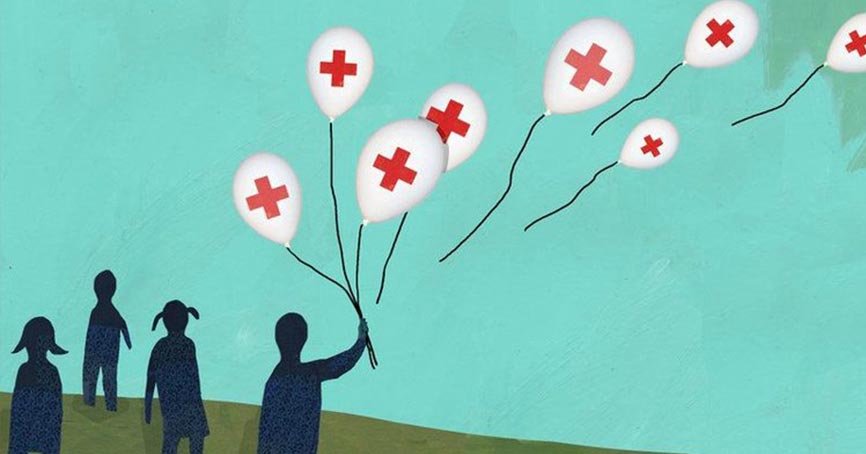According to UNICEF, Pneumonia is the leading cause of death among children less than five years of age. The report further says it kills approximately 2,400 children per day, most of whom are less than two years of age. Let's learn more about pneumonia in children, its symptoms, causes, treatment, and preventions.
What Is Pneumonia?
Pneumonia is an infection or inflammation in one or both of the lungs, sometimes known as a chest infection. This lung infection affects people of all ages, but it is more prevalent in children under five years. Pneumonia can also lead to other diseases, such as meningitis, an infection in the brain.
Further, there are mainly three types of pneumonia:
- Bacterial pneumonia - Various bacteria cause this type of pneumonia. Streptococcus pneumoniae most commonly causes it.
- Viral pneumonia - This type of pneumonia is caused by various viruses, including parainfluenza virus, respiratory syncytial virus, influenza virus, and adenovirus.
- Mycoplasma pneumonia - Also known as Walking Pneumonia, this type of pneumonia is caused by Mycoplasma pneumoniae bacteria.
Symptoms of Pneumonia in Children
The warning signs of pneumonia may be mild or severe. These symptoms include:
- cough
- fever, chills
- a headache
- flushed skin
- a sore throat
- muscle pain
- nausea, vomiting or diarrhoea
- difficulty in breathing
- shortness of breath
- rapid breathing
- fatigue, from mild tiredness to exhaustion
- irritability, poor appetite, restlessness
- decreased activity level
Causes of Pneumonia
Lung infection is the most common cause of all types of pneumonia. Viruses, bacteria, or fungi that live in the surrounding environment enter the lungs and contract infections, including pneumonia. Children with bacterial pneumonia usually fall sick quickly, starting with a sudden unusual fast breathing and high fever. Children with viral pneumonia probably have symptoms that show gradually and are less severe, though wheezing can be more common.
What Is the Treatment of Pneumonia in Children?
Treatment for pneumonia involves curing the disease and avoiding complications. Kids who have
community-acquired pneumonia generally can be treated at home with medicines. Although most symptoms go down in a few days or weeks, the feeling of fatigue can persist for some time.
The doctors determine precise treatment for pneumonia based on:
- child's overall health, age, and medical history
- cause of the condition
- the extent of the condition
- parents opinion or preference
- child's tolerance for specific procedures, medications, or therapies
- expectations for the course of the state
The cure for pneumonia in children may include antibiotics for bacterial and mycoplasma pneumonia. However, there is no effective treatment yet for viral pneumonia. It usually resolves on its own.
Who Is at Risk?
Children who are otherwise well usually recover quickly when given proper care. However, pneumonia is a severe condition and children are at higher risk if they:
- have trouble swallowing
- suffered from a chronic illness, especially one that affects the lungs, heart, or kidneys
- have an unstable immune system for any reason
- went through a recent surgery or procedure
- have pneumonia with no-treatment
How to Prevent Pneumonia?
Pneumonia in children can be prevented by the
pneumococcal vaccine (PCV). The first dose becomes due when the child is two months old. Remember to keep the child up to date on all of their immunisations. Other than this, below are some more key points to take into account.
- Avoid smoking anywhere around the child.
- Wash hands before handling food, when using the restroom, and after being outside.
- Avoid being around people who are ill.
- Serve a healthy diet
- Make them exercise, and also give them enough rest.
- Tell the doctor if there's trouble in swallowing.
Prevention is always better than cure. However, if there are even minor symptoms of pneumonia, consult the doctor. Also, ask them to advise some self-care tips for quick recovery.

 Jul 04, 2018
Jul 04, 2018
 May 30, 2018
May 30, 2018 May 10, 2018
May 10, 2018 May 17, 2018
May 17, 2018